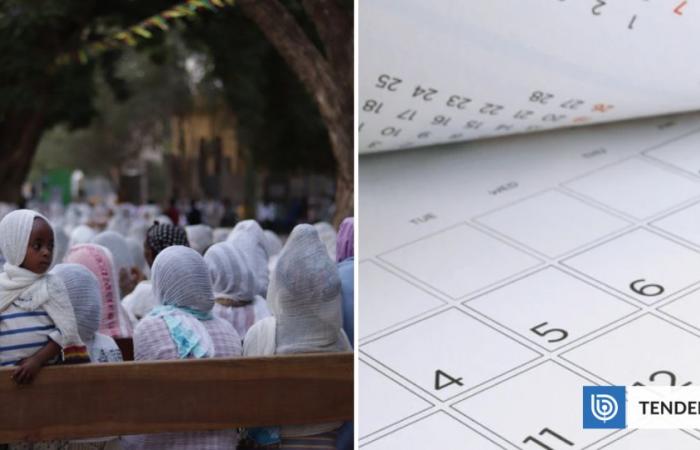
In a world where most countries are living in the year 2024, there is a corner in Africa that continues to mark the calendar in a different way. Ethiopia, the second most populous nation on the continent, It is located in the year 2016, a gap of seven years and eight months with respect to the Gregorian calendar that governs much of the planet.
According to CNN, this phenomenon It is not an accident nor a mere curiosity; It is a deep reflection of Ethiopian history, identity and traditions.
The difference in calendars goes back centuries. While the Gregorian calendar was introduced by Pope Gregory
This Ethiopian calendar, which resembles the Coptic calendar of the Coptic Orthodox Church of Alexandria, It follows a solar-lunar system and consists of 13 months. Twelve of these months have 30 days, and the final month has only five days, or six in leap years.
Living between two worlds
For Ethiopians, navigating between their calendar and the Gregorian calendar can be a constant challenge. Eshetu Getachew, CEO of Rotate Ethiopia Tours And Travel, highlighted to CNN the uniqueness of his nation: “We are unique. We were never colonized. “We have our own calendar, our own alphabet, our own cultural traditions.”
This cultural independence is reflected in daily life, where many institutions and businesses must continually switch between both systems to communicate effectively, both within the country and with the outside world.
Goitom W. Tekle, an Ethiopian archaeologist based in Germany, describes the complexity of this double time management: “I still cannot completely switch from one to the other. It’s quite a challenge. I need to think about the hours, the days, sometimes the months, and sometimes even the year.”
This challenge not only affects everyday life, but also administrative processes such as requesting birth certificates, where correct date conversion is crucial.
A 12 hour clock system
The Ethiopian New Year celebration, known as Enkutatash, occurs on September 11 (or the 12th in leap years), marking the end of the rainy season and the beginning of a new cycle. Abel Gashaw, an Ethiopian photographer, prefers this calendar, describing it as more logical, especially in reference to the beginning of the year.
“It’s a new beginning for us… After that, the amount of rain decreases, and everywhere becomes so green.” Gashaw explained to the aforementioned media that having the New Year on January 1 would not make sense in Ethiopia, since that date falls in the dry season.
While most countries start their day at midnight, Ethiopians use a 12-hour clock system that runs from dawn to dusk, starting at 1 a.m.
This means that what most people outside of Ethiopia consider to be 7 am, Ethiopians see as 1 am, which can cause confusion, especially for travelers. Gashaw says he always double- or triple-checks when setting up appointments with international visitors to avoid misunderstandings.
A resilient cultural identity
Despite these challenges, most Ethiopians, especially those in rural areas, remain attached to their traditional system. Tekle notes that Ethiopia is a conservative Christian country where Most people don’t care about how things are done in the Western world.
Verena Krebs, a German historian specializing in medieval European and African history, emphasizes that there is no practical reason for Ethiopia to adopt the Western calendar: “From an outsider’s perspective, I don’t think any other nation should lose its own local system, that has much more cultural meaning and meaning for them.”





